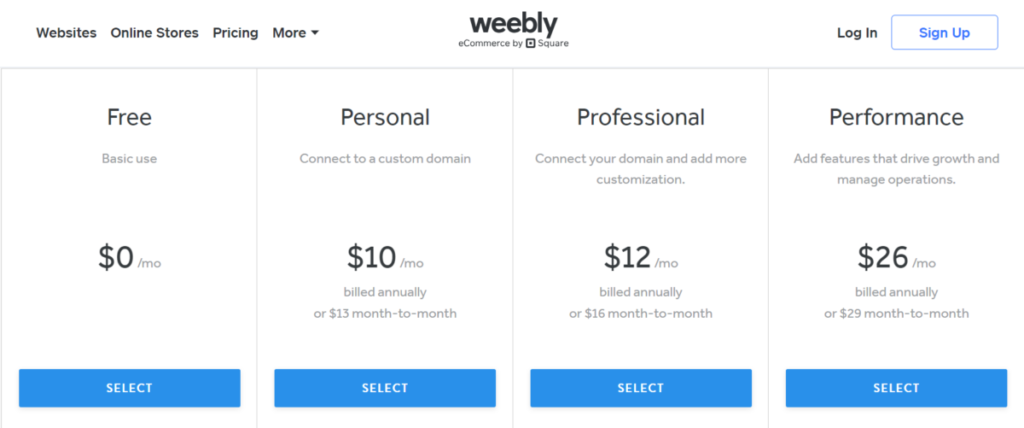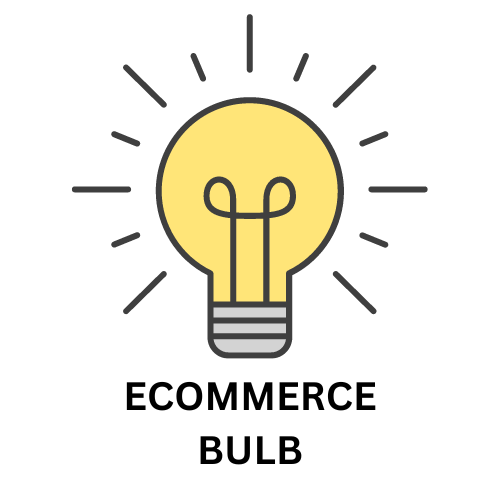
Weebly Vs. Shopify? Which is Better eCommerce Platform?
In order to decide which eCommerce platform to use, Shopify vs. Weebly, there are many factors that you have to take into consideration. If you want to decide which eCommerce platform to choose, there are many things to consider.
These are some examples of these factors:
- Cost.
- SEO friendliness.
- Page load speed.
- Canonical website URL.
- Indexing Control.
- Customizable HTML capabilities.
- Sitemap Generator.
- Integration with Google Analytics.
- Product Tagging and Categorization.
- Batch Uploading.
- Mobile Optimization.
- Built-in Blogging and Marketing Features.
- Social Sharing Buttons.
- Content Management Capabilities.
- Discount and promotion code tools.
- Easy to use Checkout.
- Reporting tools and custom reports.
- Integration of email marketing tools.
- Multiple payment options.
- Flexibility to add new eCommerce features.
- Exclusive features.
- Cons and pros.
Shopify Vs. SqaureSpace Comparison, Which is Better eCommerce Platform?
Pricing (Shopify Vs. Weebly):

Shopify’s Pricing:
In Shopify, the price starts from $32 for the basic plan and goes up to (The Advanced Plan) with a price tag of $399.
Do not forget that, in Shopify, you’ll need to buy apps, themes, and designs. You might also need to purchase some services like a domain name and -in some cases- web hosting services.

Weebly’s Pricing:
Weebly offers a variety of eCommerce pricing plans to fit businesses of all sizes. Here is a summary of the plans and their features:
Free
- $0 per month
- Connect to a custom domain
- Simple online store with up to 5 products
- Inventory management
- Payment processing
- Shipping and tax calculation
- Sales reporting
Personal
- $10 per month
- Connect to a custom domain
- Add up to 25 products
- SEO tools
- Social media integration
- Email marketing tools
- 24/7 customer support
Professional
- $12 per month
- Connect to a custom domain
- Add up to 100 products
- Inventory tracking
- Fraud protection
- Abandoned cart recovery
- Google Analytics integration
Performance
- $26 per month
- Connect to a custom domain
- Add an unlimited number of products
- Inventory management with variants
- Real-time shipping rates
- Advanced SEO tools
- Marketing automation
- 24/7 customer support
In addition to the above plans, Weebly also offers a variety of add-ons, such as:
- SSL Certificate: $12 per year
- Domain Privacy: $10 per year
- Site Search: $7 per month
- Product Reviews: $7 per month
- Product Badges: $7 per month
- Social Media Sharing: $7 per month
Weebly’s ecommerce pricing plans are very affordable, especially for new businesses. The free plan is a great way to test out the platform and see if it’s a good fit for your needs. As your business grows, you can upgrade to a paid plan for more features and support.
Which has Better Pricing Plans, Shopify Vs. Weebly?
Weebly’s plans are generally more affordable than Shopify’s plans. If you are a small business with a limited budget, Weebly is a good option. However, if you need more features or have a large business, Shopify may be a better choice.
SEO Capabilities (Shopify Vs. Weebly):

Shopify’s SEO (Search Engine Optimization) Capabilities:
Shopify has an intuitive interface for controlling fundamental SEO options like:
– Title tags.
– Meta descriptions.
-URLs.
-Sitemaps.
Robots.txt documents.
It also has a blog tool that may help you create content & optimize it for search engines. However, Shopify has a number of shortcomings when it comes to SEO, such as:
- Product pages, collections, or blog entries’ URL structures cannot be changed.
For instance, removing the prefixes “products,” “collections,” or “blogs” from your URLs would make them lengthier and less relevant for SEO.
Weebly’s SEO Capabilities:
Weebly offers several features to help with search engine optimization (SEO). Here are some of the SEO capabilities of Weebly:
1. Keywords and Descriptions: Weebly allows users to add keywords and descriptions to their websites, which can help with ranking in search engines.
2. Sitemap: Weebly automatically generates a sitemap for websites, which can also help SEO.
3. SEO-friendly HTML Formatting: All Weebly sites feature SEO-friendly HTML formatting.
4. Meta Descriptions: Weebly allows for the addition of meta descriptions.
5. Responsive Design: Weebly sites have a responsive design.
6. Advanced SEO Settings: More advanced search engine optimization settings are available, such as alt tags on images and page-specific descriptions.
7. Customizability: Weebly lets you modify your site’s HTML and CSS codes.
8. Page Titles Optimization: Updating your page titles with relevant keywords will help your site get found by the right audience.
Remember, while Weebly provides these tools, the effectiveness of your SEO efforts will also depend on factors like the quality of your content, your use of relevant keywords, and the number and quality of links to your site.
Which eCommerce Platform has Better SEO Capabilities, Shopify Vs. Weebly?
Shopify has a consensus of providing better SEO capabilities than Weebly. It is because Shopify offers a wide range of SEO features.
Shopify is the better choice for businesses that are serious about SEO. However, if you are on a tight budget or not technical savvy, Weebly may still be a good option.
PageLoad Speed (Shopify Vs. Weebly):

Shopify’s PageLoad Speed:
Shopify provides several tools and techniques to optimize the page load speed of your online store:
1.Automatic Sitemaps and XML Sitemaps: Shopify automatically generates sitemaps for your store, making it easier for search engines to crawl and index your site.
2. URL Structure Editing: You can edit your store’s URL structure, which can help improve SEO.
3. URL Optimization: Shopify allows URL-optimized visibility enhancement in search engine results.
4. Meta Tags Support: You can add meta tags to your store’s content to improve how your website shows in search engine results.
5. Canonical Tags: Shopify uses canonical tags to prevent duplicate content from negatively impacting an eCommerce website’s SEO.
6. SSL Certification: Shopify provides SSL certification for all stores, which can improve a website’s ranking in search results.
7. Structured Data: Shopify supports structured data, making it easier for search engines to understand the content on your site.
8. Mobile Friendly: Shopify themes are mobile-friendly, a factor that search engines consider when ranking sites.
Weebly’s PageLoad Speed:
Weebly’s page load speed key influencers:
1. Fast-loading templates/themes: The theme of your website is the first element that loads for a Weebly website.
2. Properly formatted and optimized images: Images should be formatted to the desired size and kept as small as possible.
3. Clean HTML and CSS: Keeping your HTML and CSS tidy and uncluttered can help speed up your site.
4. Minimal use of images and multimedia: Minimizing the use of images and multimedia can also help improve load times.
5. Avoid using too many add-ons: Add-ons can increase load times, so it’s best to use them sparingly.
Remember, the more elements you have on your site, the longer it takes to load. Therefore, minimizing code can help improve your Weebly site’s load speed. However, it’s important to note that Weebly’s hosting is intertwined with all the other services it provides; despite offering customers an incredibly efficient cloud hosting service, it can still suffer from slow load times.
Which is better in Page Load Speed, Weebly Vs. Shopify?
Shopify has a better page load speed than Weebly. The main reason is that Shopify’s servers are faster and more reliable, and its code is more optimized for speed. Additionally, Shopify offers more features to help you optimize your website for speed, such as image compression and lazy loading.
According to Google PageSpeed Insights, Shopify websites typically have a PageSpeed score of 90 or higher, while Weebly websites have a PageSpeed score of 80 or higher. It means that Shopify websites usually load faster than Weebly websites.
***Read More: Why Shopify is Better than Volusion as an eCommerce Platform?
Canonical Website URL (Weebly Vs. Shopify):

Is Shopify Better than Weebly in Canonical Website URLs?
Yes, Shopify has a slight advantage over Weebly when we compare canonical URL capabilities. Shopify uses canonical tags to help prevent duplicate content issues. It is helpful for eCommerce sites where the same product might appear under different URLs due to different categories or tags.
By specifying a canonical URL, you tell search engines which version of the URL you want to appear in search results.
On the other hand, Weebly doesn’t provide an easy way to set canonical URLs. It means that if you have duplicate content on your Weebly site, it might be harder to manage from an SEO perspective.
However, it’s important to note that both platforms offer a range of SEO features, and the effectiveness of your SEO efforts will also depend on factors like the quality of your content, your use of relevant keywords, and the number and quality of links to your site.
Indexing Control (Shopify Vs. Weebly):

Is Shopify Better than Weebly in Indexing Control?
Shopify generally offers better indexing control than Weebly. It is due to Shopify’s more comprehensive and user-friendly approach to setting and managing canonical URLs, robot.txt files, and other indexing-related settings.
Canonical URLs are crucial for avoiding duplicate content issues and ensuring that search engines index the correct version of your website’s pages. Shopify provides a straightforward interface for setting canonical URLs for both individual pages and groups of pages. In contrast, Weebly requires manual editing of HTML code to set canonical URLs, making it more time-consuming and less flexible.
- Robot.txt files tell search engines which pages of your website to crawl and index. Shopify offers a built-in tool for generating and editing robot.txt files, while Weebly requires setting the file’s code. Shopify’s tool provides clear instructions and visual cues, making it easier to control which pages are indexed.
Additionally, Shopify provides more granular control over indexing settings through its built-in SEO tools. These tools allow you to specify whether individual pages should be indexed, followed, or archived by search engines. This level of control is not available on Weebly’s platform.
Overall, Shopify’s superior indexing control features make it a more suitable choice for businesses that want to optimize their website’s SEO performance and ensure that search engines index the desired content. Weebly’s indexing control capabilities are less comprehensive and more manual, making it a less suitable choice for businesses that require granular control over their website’s indexing.
Read More: Is Shopify a Better eCommerce Platform than SquareSpace?
Customizable HTML Capabilities (Shopify Vs. Weebly):

Is Weebly Better than Shopify in Customizable HTML Capabilities?
Regarding customizable HTML capabilities, both Shopify and Weebly offer different strengths.
Shopify is a robust platform that provides extensive and highly customizable theme options. It’s ideal for those who are looking for advanced customization and have some technical expertise. However, it might have a slight learning curve since its main focus is eCommerce.
On the other hand, Weebly is known for its user-friendly interface with drag-and-drop features. It’s a What-You-See-Is-What-You-Get (WYSIWYG) editor, meaning when you edit the page, you see the results immediately. Weebly also offers HTML/CSS editing for advanced customization.
In conclusion, if you’re looking for a platform with extensive customization options and don’t mind a learning curve, Shopify might be a better choice. However, if you prefer a more intuitive, user-friendly platform that still allows for advanced HTML/CSS customization, Weebly could be a suitable option. We recommend you explore both platforms and see which aligns best with your requirements.
Read More: Shopify & Adobe Commerce (Magento) as an eCommerce Platform, which is better?
Sitemap Generators (Shopify Vs. Weebly):

Is Weebly or Shopify Better in Sitemap Generators?
Both Shopify and Weebly offer automated sitemap generation capabilities, but Shopify’s sitemap generator is more comprehensive and user-friendly.
Shopify’s sitemap generator automatically creates and updates sitemaps, ensuring that search engines can discover and index all your website’s content. It also allows you to customize your sitemap settings, such as priority levels and change frequency. Additionally, Shopify provides a built-in tool for submitting your sitemap to search engines & enhancing your website’s SEO performance.
Weebly’s sitemap generator also automatically generates your website’s sitemap, but it shows less flexibility and control over the sitemap settings. You cannot customize priority levels or change frequency, and you need to submit your sitemap to search engines.
Overall, Shopify’s sitemap generator is more robust and user-friendly.
Weebly’s sitemap generator is sufficient for basic needs, but it lacks the advanced features and customization options offered by Shopify.
Read More: Wix Vs. Shopify Comparison, which one is a Better eCommerce Platform?
Integration With Google Analytics (Shopify Vs. Weebly):

Is Shopify or Weebly Better in Google Analytics Integration?
Weebly’s Google Analytics integration allows you to connect your Google Analytics account to your Weebly site. You can track similar metrics to Shopify, such as traffic sources, user behaviour, and conversion rates.
However, Weebly’s integration lacks the advanced features offered by Shopify, such as enhanced eCommerce reporting, custom dimensions and metrics, and goal tracking. It limits the depth of analysis you can perform on your website’s performance.
Overall, Shopify’s Google Analytics integration provides more comprehensive tools for tracking and analyzing website traffic and user behaviour. If you want to gain deeper insights into your website’s performance and make data-driven decisions, Shopify is the better choice. However, if you have a simple website and don’t require advanced analytics capabilities, Weebly’s integration may be enough.
Read More: BigCommerce or Shopify, Which eCommerce Platform is the best for you needs?
Product Tagging and Categorization (Shopify Vs. Weebly):

Is Weebly or Shopify Better in Product Tagging & Categorization?
Shopify provides a more flexible tool to create and manage products, which makes it more eCommerce-friendly. Shopify uses collections to group similar or related items so potential customers can easily find them. Categories in Shopify are collections and are used to organize how products will show on a shop’s home page.
On the other hand, Weebly is recognized for its user-friendly interface, enabling individuals to create a digital storefront without delving into the complexities of coding.
In conclusion, if you’re looking for a platform with more advanced product tagging and categorization, Shopify might be a better choice. However, if you prefer a more user-friendly platform, Weebly could be a suitable option. We recommend you explore both platforms and see which aligns best with your requirements.
Batch Uploading (Weebly Vs. Shopify):

Weebly Vs. Shopify, Which eCommerce Platform has a Better Batch Uploading of Products?
Shopify’s batch uploading process is more user-friendly and efficient.
With Shopify, you can upload a CSV (comma-separated values) file of your product information, including product names, descriptions, prices, and images. Shopify will automatically create product pages for each of your uploaded products, and you can then customize the pages as needed.
Shopify also offers a built-in CSV template that you can use to format your product data. This template makes it easy to ensure that your product data is in the correct format for Shopify to import.
Additionally, Shopify’s batch uploading process aims to handle large quantities of products. You can upload up to 500 products at a time, and Shopify will automatically split up larger uploads into smaller chunks to ensure that the process is successful.
Weebly also allows you to batch-upload products using a CSV file. You need to create your own CSV template, and splitting up large uploads is not as automated as Shopify’s.
Overall, Shopify’s batch uploading process is user-friendly, efficient, & can handle larger quantities of products than Weebly’s batch uploading process.
If you need to import many products into your store, Shopify is the better choice. However, if you only need to import a few products, Weebly’s batch-uploading process may be sufficient.
Read More: WooCommerce Vs. Shopify eCommerce Platfrom, Which one is Better for Your Needs?
Mobile Optimization (Shopify Vs. Weebly):

Weebly Vs. Shopify, Which eCommerce Platform has the Better Mobile Optimization?
Shopify and Weebly offer mobile-optimized themes and templates to ensure your website looks great on all devices. However, Shopify generally provides more advanced mobile optimization features and is attentive to a stronger focus on mobile-first design.
Shopify’s mobile optimization features include:
- Responsive themes: Shopify’s themes adapt to different screen sizes and orientations, ensuring that websites look great on phones, tablets, and computers.
- Mobile-first design: Shopify’s theme developers are encouraged to follow a mobile-first design approach, which means that they prioritize designing for smaller screens first and then expanding their designs for larger screens.
- Image optimization: Shopify automatically optimizes your images for mobile devices, ensuring quick loading and a great look on all screens.
- Mobile-friendly checkout: Shopify’s checkout process is easy to use on mobile devices, with large buttons and clear instructions.
Weebly’s mobile optimization features also include responsive themes and image optimization. However, Weebly’s themes are not as consistently mobile-friendly as Shopify’s themes, and Weebly does not have the same emphasis on mobile-first design.
Overall, Shopify’s mobile optimization features are more advanced and comprehensive than Weebly’s. If you want to ensure that your website looks great and is easy to use on all devices, Shopify is the better choice. Weebly’s mobile optimization features may be sufficient for a simple website.
If you have a more complex website or want to provide a mobile-optimized experience, Shopify is the better option.
Built-in Blogging & Marketing Features (Weebly Vs. Shopify):

Is Weebly Better than Shopify in Built-in Blogging & Marketing Features?
When it comes to built-in blogging and marketing features, both Weebly and Shopify offer different capabilities.
Weebly has strong marketing and SEO tools, including blogging features. It is a user-friendly website builder for non-coders. You can get domain registration and web hosting services with tools for creating basic websites, customizing web designs, promoting your business, and processing transactions.
On the other hand, Shopify is an eCommerce platform that focuses on helping entrepreneurs build online stores. The built-in analytics platform in Shopify tracks more granular data than Weebly.
Shopify generates reports on sales, profit margins, visitor behaviour, and more. It also lets you build your reports from scratch.
In conclusion, if you’re looking for a platform with more advanced blogging and marketing features, Weebly might be a better choice. However, if you prefer a platform that provides more granular data tracking, Shopify could be a suitable option. We recommend you explore both platforms and see which aligns best with your requirements.
Social Sharing Buttons Availability (Weebly Vs. Shopify):

Weebly Vs. Shopify in Social Sharing Buttons Capabilities:
Weebly and Shopify offer the service of adding social sharing buttons to your website. However, Shopify provides a wide range of social sharing options and more flexibility in the customizability of the buttons.
Weebly’s social sharing buttons are available for the following social media platforms:
- (X) Twitter
- Tumblr
You can choose to display the buttons on all of your website’s pages or specific pages. You can also customize the size and colour of the buttons.
Shopify’s social sharing buttons are available for the following social media platforms:
- (X) Twitter
- Tumblr
- VKontakte
- Odnoklassniki
- Telegram
In addition to the wide range of social media options, Shopify also allows you to customize the following aspects of the buttons:
- Button style: You can choose from many button styles, including icons, text, and icons with text.
- Button placement: You can display the buttons at the top, bottom, or side of your website’s pages.
- Button alignment: You can align the buttons to the left, centre, or right.
- Button colour: You can choose from a variety of button colours.
- Button size: You can choose from a variety of button sizes.
Overall, Shopify’s social sharing buttons are more versatile and customizable than Weebly’s buttons. If you need more control over the look and feel of your social sharing buttons, Shopify is the better choice.
Content Management Capabilities (Weebly Vs. Shopify):

Does Shopify Have a Better CMS than Weebly?
When it comes to content management capabilities, both Weebly and Shopify offer different strengths.
Weebly is a website builder with eCommerce capabilities. It’s recognized for its user-friendly interface, enabling individuals to create a digital storefront without delving into the complexities of coding. Weebly comes with access to everything from free templates for design to SEO support, free plan access and product filter searching. Compared to Shopify, Weebly is a tool that puts user-friendliness first.
On the other hand, Shopify is an eStore builder with web page capabilities. Shopify provides greater flexibility with fonts, colours, and code customization to tailor your brand. Shopify tools are much more diverse & easy-to-manoeuvre. Shopify also provides a superior mobile app for managing your store on the go.
In conclusion, if you’re looking for a platform with more advanced content management capabilities, Shopify might be a better choice. However, if you prefer a more user-friendly platform, Weebly could be a suitable option. We recommend you explore both platforms and see which aligns best with your requirements.
Discounts & Promotion Codes (Weebly Vs. Shopify):

Is Shopify Better than Weebly in Discounts & Promo Codes Capabilities?
Yes, Shopify is known for its wide range of discounts and promotion codes, including:
- Percentage off discounts: These discounts apply to specific products, categories, or your entire order.
- Free shipping discounts: They’re discounts that apply to orders over a certain amount or to specific products or categories.
- Buy one, get one (BOGO) discounts: These discounts allow you to get one item for free when you purchase two.
- Gift card discounts: These discounts allow you to purchase gift cards at a discounted price.
Shopify also offers a variety of ways to apply discounts and promotion codes, including:
- Entering a code at checkout: This is the most common way to apply a discount or promotion code.
- Using a discount link: This link will apply the discount to your order when you click on it.
- Adding a discount code to your cart: This discount works by entering the code in the “Discount code” field at checkout.
- Wider range of discounts and promos.
- Discounts & Promos are easier to find, use & apply.
Weebly’s Discounts & Promo Codes Capabilities:
Weebly provides many options for discounts and promo codes for their online stores.
– Coupon Builder: Weebly’s platform has a built-in coupon builder that allows you to create and market your coupon programs. You can send coupon offers to your mailing list via email marketing programs. You can also use text elements on your homepage to add coupon codes, creating limited-time offers and coupon CTAs.
– Types of Coupons: Weebly allows you to create three types of coupons with different rules and restrictions. Customers can enter the coupon code during checkout and see the discount immediately. All discounts apply before tax and shipping rates.
– Coupon Code: You can enter a code for your coupon, which is the text your customers will enter at checkout. The code can be any combination of letters, numbers, and special characters, and it isn’t case-sensitive.
– Coupon Validity: You can decide how long the coupon will be active and how many times it can be used. You can limit the number of coupons available or set an expiration date.
– Discount Type: You can choose the type of discount (percentage discount, dollar amount discount, free shipping) and decide what it applies to (all orders, orders over a certain amount, specific categories, specific items).
In conclusion, Weebly offers a comprehensive set of tools for creating and managing discounts and promo codes for their online stores.
But Shopify has a more comprehensive and detailed options.
Easy to Use Checkout (Shopify Vs. Weebly):

Regarding the ease of use for the checkout process, both Shopify and Weebly have their strengths.
Shopify is known for its robust ecommerce capabilities, including a user-friendly checkout process. Shopify’s checkout is simple and secure, helping to reduce cart abandonment and increase conversions. It also offers a range of payment options, making it easy for customers to complete their purchases.
On the other hand, Weebly has a user-friendly interface. Weebly’s checkout process is straightforward to navigate, making it a good choice for businesses new to eCommerce.
In conclusion, both Shopify and Weebly offer easy-to-use checkout processes, with a slight advantage for Shopify for one-click checkout tech. The choice between the two would depend on your specific needs and preferences.
Reporting Tools and Custom Reports (Shopify Vs. Weebly):

Is Shopify Better than Weebly in Reporting Tools & Custom Reports?
Yes, regarding the reporting tools and custom reports, Shopify offers a more comprehensive & versatile set of features. Shopify provides a wide range of pre-built reports covering various aspects of your business, including sales, inventory, marketing, and customer behaviour. These reports can be easily accessed and analyzed using Shopify’s intuitive reporting dashboard.
Additionally, Shopify allows you to create custom reports to tailor the data to your needs. You can filter and segment data based on various criteria, such as product categories, customer demographics, and sales channels. This flexibility enables you to gain deeper insights into your business performance and identify areas for improvement.
Integration of Email Marketing Tools (Shopify Vs. Weebly):

Overall, Shopify is the better platform for email marketing if you need a comprehensive and flexible solution. If you’re on a budget or don’t need all the bells and whistles, Weebly may be a good option.
Shopify integrates with almost all email marketing tools, including Mailchimp, Constant Contact, AWeber, and Sendinblue. You can use the email marketing tool that best suits your needs and budget. Shopify’s email marketing integrations also provide deeper integrations, allowing you to sync customer data and track email marketing campaigns directly from your Shopify dashboard.
Multiple Payment Options (Weebly Vs. Shopify):

Both Weebly and Shopify offer multiple payment options, but Shopify is a better option for businesses that need a wide range of payment options. Shopify has more payment gateways than Weebly, and it also offers more features for processing payments, such as fraud prevention and recurring billing.
Flexibility to Add New eCommerce Features (Weebly Vs. Shopify):

Regarding flexibility to add new eCommerce features, Shopify is a better option than Weebly. It is because Shopify offers a wide range of features and customization options out of the box, as well as an app store with over 6,000 apps that can extend its capabilities even further. Meanwhile, Weebly has a more limited set of built-in features and a smaller app store, making it less flexible for businesses that need to add specific features or integrate with third-party applications.
Exclusive Features (Weebly Vs. Shopify):

Which eCommerce Platform has More Exclusive Features, Weebly or Shopify?
In exclusive features, both Shopify and Weebly offer different capabilities.
Shopify is a superior eCommerce website builder and helps your company stand out. Shopify provides a comprehensive suite of tools to set up, manage, and grow online stores, making it a go-to platform for ambitious entrepreneurs. Shopify supports dozens of payment providers, from Adyen to Worldpay. You can support multiple languages with Shopify, tap into dozens of different payment methods, and even access a host of great email templates for marketing.
On the other hand, Weebly is recognized for its user-friendly interface, enabling individuals to create a digital storefront without delving into the complexities of coding. Weebly’s fantastic pricing policy means that it’s affordable for small businesses. Weebly gives you access to everything from free website design templates to SEO support, free plan access and product filter searching. Compared to Shopify, Weebly is a tool that puts user-friendliness first.
Market Share (Weebly Vs. Shopify):

According to a recent report by Statista, Shopify has a significantly larger market share than Weebly. In 2022, Shopify had a market share of 24.1%, while Weebly had a market share of 2.8%. Shopify is used by more than eight times as many businesses as Weebly.
There are several reasons why Shopify has a larger market share than Weebly. Shopify is a more mature platform with countless features and a more active developer community. It is also better known and more widely recommended among businesses.
CONS Of Weebly Vs. Shopify:

Cons of Shopify:
- Limited customization.
- Transaction fees.
- App costs.
- Limited support for B2B commerce.
Cons of Weebly:
- Less Innovative.
- Limited Blogging Tools.
- Help Can Be Expensive.
- Backup System.
- Ads on Free Websites:
- Limited Customization Options.
- Phone Support is only available on the Professional plan and above.
BuiltWith.com Data (Weebly Vs. Shopify):

As of November 2023, more than 4.7 million website use Shopify as eCommerce platform according to Builtwith.com, while more than 880 thousand eCommerce website use Weebly technology.
Hidden Charges & Fees (Weebly Vs. Shopify):

Shopify’s Hidden Charges & fees:
Unless you use Shopify Payments, which is the payment gateway of Shopify, they’ll charge transaction fees when utilizing other payment gateways.
Transaction costs range from 0.5% to 2%. Shopify Payments is only available in a few countries and regions, and the fees range from 2.4% to 2.9% + 30 cents for each transaction.
Shopify has a huge and diverse app store with over 6,000 apps that can assist you in adding and improving various features for your online business. Many apps are not free and may impose monthly subscriptions, one-time payments, or usage-based costs. Some applications may need you to upgrade your Shopify plan to use their features.
Shopify has plans ranging from $29 to $299/month to meet demands and budgets. The cost reflects the annual payments. If you pay monthly, you will pay more. The Basic Shopify package, for example, costs $29 per month if paid annually, but $35 per month if paid monthly.
Weebly’s Hidden Charges & Fees:
1. Domain Renewal: The free domain with annual billing is available only for the first year, after which you need to renew at a fixed cost.
2. Transaction Fees: Weebly charges a transaction fee for each sale made through the Weebly platform. The transaction fee is 2.9% + $0.30 per sale.
3. Limited Free Plan: The free plan does not fit everyone. It lacks the features needed to run a website or an eCommerce business. And finally, your website will be ad-driven & it will look unprofessional.
4. Upgrade Costs: Depending on the goals for your website, you may quickly discover that the free plan at Weebly is not enough. However, just because you settled on a paid plan doesn’t necessarily mean you only pay what shows on your plan & all your costs are covered.
Conclusion (Overall Comparison Table for Weebly Vs. Shopify):
| eCommerce Platform | Shopify | Weebly |
|---|---|---|
| Price | 7 | 8 |
| SEO Friendliness | 7.5 | 7.25 |
| Page Load Speed | 8.5 | 8.3 |
| Canonical Website URL | 9 | 6.1 |
| Indexing Control | 8.5 | 7.3 |
| Customizable HTML capabilities | 9 | 8.6 |
| Sitemap Generator | 9 | 8.3 |
| Integration With Google Analytics | 7.5 | 7 |
| Product Tagging & Categorization | 6.5 | 6.2 |
| Batch Uploading | 7 | 6.3 |
| Mobile Optimization | 9 | 7.7 |
| Built-in Blogging & Marketing Features | 7 | 6.8 |
| Social Sharing Buttons | 9 | 6.8 |
| Content Management Capabilities | 8 | 7.8 |
| Discount & Promo Code Tools | 9 | 8.4 |
| Easy to Use Checkout | 9.5 | 9.1 |
| Reporting Tools & Custom Reports | 8.5 | 7 |
| Integration of Email Marketing Tools | 9 | 8 |
| Multiple Payment Options | 9 | 6.5 |
| Flexibility to Add New eCommerce Features | 9 | 6.4 |
| Exclusive Features | 9 | 7.9 |
| Market Share | 9.5 | 7.7 |
| CONS & PROS | 8 | 6.9 |
| Builtwith.com Data Index | 9.5 | 7.1 |
| Hidden Fees & Charges | 7.5 | 6.3 |
| Overall Assessment (Average) | 8.4 | 7.35 |
As we can see from the detailed comparison between these two platforms (Shopify Vs Weebly) that the overall score for Shopify is better than Weebly’s.
Note that the comparison was done with eCommerce and online business in mind.


Leave a Reply